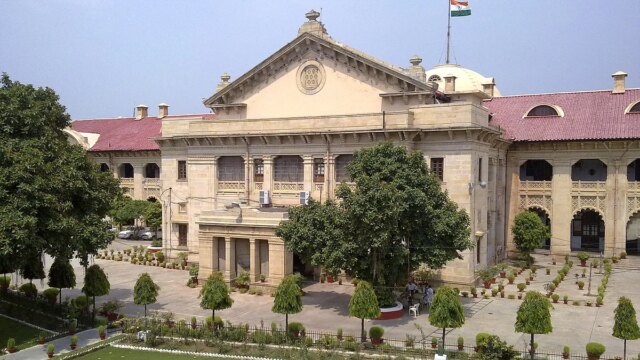Prayagraj: In a significant development in the Krishna Janmabhoomi–Shahi Eidgah dispute, the Allahabad High Court on Friday refused to declare the Eidgah premises in Mathura as a disputed structure. The decision came after a comprehensive hearing of arguments from both Hindu and Muslim sides. The bench, led by Justice Ram Manohar Narayan Mishra, rejected the plea filed by petitioner Mahendra Pratap Singh, president of the Shri Krishna Janmabhoomi Mukti Nyas.
The Hindu petitioner had urged the court to label the Shahi Eidgah as a disputed site, drawing parallels with the Babri Masjid case. He argued that the Eidgah was constructed over the original sanctum sanctorum of the Krishna temple, allegedly destroyed during historical invasions. However, the Muslim side strongly opposed these claims and submitted written objections, asserting the religious and legal legitimacy of the Eidgah mosque and denying any encroachment on temple property.
Justice Mishra, after hearing detailed arguments and reviewing documents from both parties, declined to entertain the plea to categorize the Eidgah structure as disputed. The court also noted the absence of substantial legal grounds to reclassify a centuries-old place of worship in the absence of clear historical or archaeological evidence.
Muslim organizations and community leaders welcomed the verdict, terming it a balanced and lawful step toward preserving communal harmony. “This judgment reinforces the rule of law and rejects communal polarization over religious sites,” said a member of the Shahi Eidgah Committee. They emphasized that places of worship should not be dragged into legal controversies without credible evidence and that such actions only disrupt social peace.
Legal experts noted that the ruling upholds the sanctity of religious coexistence and sends a message against the politicization of religious identities. With this decision, the decades-old structure of the Shahi Eidgah, situated near the Krishna temple complex, continues to stand unchallenged in the eyes of the law.
Meanwhile, the petitioner is expected to consider further legal options, though the High Court’s order is being seen as a significant judicial milestone in the ongoing debate over places of worship in India.
















































